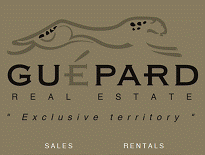Turkey: Art / Culture
Turkey Art / Culture Profile 2012
 Hospitality is an integral part of Turkish culture. Friends, relatives, and neighbors often visit each other. The tradition of hospitality dictates that visitors are always invited in and offered something to drink and something to eat. Turks go to great lengths to make their guests feel comfortable and may even tolerate behavior that they consider inappropriate. In general, the Turkish people are open-minded, hospitable and well educated.
Hospitality is an integral part of Turkish culture. Friends, relatives, and neighbors often visit each other. The tradition of hospitality dictates that visitors are always invited in and offered something to drink and something to eat. Turks go to great lengths to make their guests feel comfortable and may even tolerate behavior that they consider inappropriate. In general, the Turkish people are open-minded, hospitable and well educated.
The liveliness of the Turkish culture is so rich that it cannot be fit into a single definition. It is influenced by the ancient history of Anatolia, the Mediterranean, the Middle East, the Caucasus, Eastern Europe, and certainly by the Aegean culture.
 Throughout history, Anatolia, like Istanbul, has hosted and produced many centers of culture and the legacy of various civilizations attests to that fact. Today, this heritage also determines the cultural life of Turkey. The culture of tolerance for all religions and languages living together in peace, spread from Istanbul (which was the capital of empires) to Anatolia. This tradition of tolerance is one of the most important inheritances that Turkey can share with the world.
Throughout history, Anatolia, like Istanbul, has hosted and produced many centers of culture and the legacy of various civilizations attests to that fact. Today, this heritage also determines the cultural life of Turkey. The culture of tolerance for all religions and languages living together in peace, spread from Istanbul (which was the capital of empires) to Anatolia. This tradition of tolerance is one of the most important inheritances that Turkey can share with the world.
Even though the entire world has been transformed between 1923 and 2007, Turkey has truly come a very long way. A traditional society had been turned into a modern urban society in which most people now live in metropolitan centers. A shattered economy, based almost entirely on agriculture, has become a competitive industrial power, including partnership in a Customs Union with the rest of Europe. Most striking of all, where there was once a sultanate, there is now a multi-party democracy in a country firmly attached to republican institutions and representative government.
The Ottoman sui generis ("multi-cultural and multi-religious", "cosmopolite co-habitation" system's legacy) has been transformed into the modern Republic's secular system. Christian churches, Assyrian monasteries, the Jewish community and many different minorities are living in the harmony with the Muslim majority. There is a certain sense that these things are not appreciated outside the country and that Turkey's qualities and achievements have not been given their due recognition. For this reason, the ordinary Turkish people are proud when their country achieves success on the sporting field, as it did during the 2002 World Cup, or in music or other areas of life.
Hospitality
 In addition to the existing social values of families living in a big city, the Turkish people have retained some distinctive values of their own. One is an immense courtesy towards guests and visitors and a tendency to lavish hospitality upon them, no matter how costly. Another is an abiding respect for their family and its senior members. Another Turkish value is a strong respect for hard work and determination. And above all, there is a sense of humor and a love of life and music. One 19th century English ambassador noticed that the people of Turkey loved to sing and dance whenever they could. Many things have changed in Turkey since his time, but not that.
In addition to the existing social values of families living in a big city, the Turkish people have retained some distinctive values of their own. One is an immense courtesy towards guests and visitors and a tendency to lavish hospitality upon them, no matter how costly. Another is an abiding respect for their family and its senior members. Another Turkish value is a strong respect for hard work and determination. And above all, there is a sense of humor and a love of life and music. One 19th century English ambassador noticed that the people of Turkey loved to sing and dance whenever they could. Many things have changed in Turkey since his time, but not that.



















